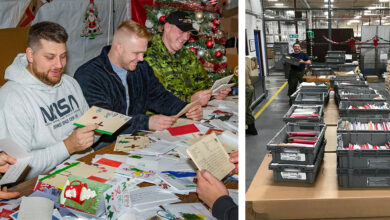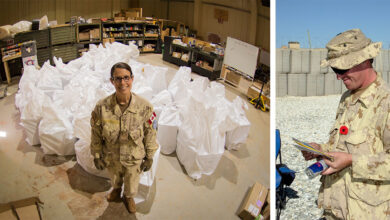Deployment Tipster
7 Tips to Prepare for a deployment
 In so many ways, you can never fully prepare yourself for a deployment or lengthy absence. You can be the most organized and together person on the planet and things will happen that you couldn’t in a million years have predicted. They are also opportunities to learn about who you are, what you are capable of, and force you to do things you wouldn’t have ever tried otherwise.
In so many ways, you can never fully prepare yourself for a deployment or lengthy absence. You can be the most organized and together person on the planet and things will happen that you couldn’t in a million years have predicted. They are also opportunities to learn about who you are, what you are capable of, and force you to do things you wouldn’t have ever tried otherwise.
Like many things in life, deployments are what you make of them. I have now survived three (eight-month plus) deployments, and while each was different, there were things that I consistently did that definitely made my life much easier.
During the pre-deployment stage, it is normal to feel anxious, sad, disorganized and underprepared. The way that I coped was to:

1. Attend deployment sessions
Knowledge is power. Going to sessions and getting factual information is essential. Avoid listening to gossip and rumours as they are often not based in reality and usually, only serve to stress you out. Be careful about what you share with your family and particularly children, as they are looking to you for how to react. If you are able to show them strength and courage during adversity, they will learn to do the same.

2. Create Contact List
Make a list of contact information for people from local plumbers to school contacts, etc. and show your children where things are in the house too. Being unfocused and feeling out of control is normal. Giving yourself and your family member’s roles and jobs before the deployment will provide them with a purpose and a focus.

3. Decide Communication & Frequency
Decide what ways you are going to communicate and the frequency (emails, blog, phone calls, Skype, etc.). Knowing the options on how your family is going to communicate helps to reduce anxiety and provides a sense of relief that you will not be completely deserted.

4. Inform People
If you have children, let their schools know that a family member is going away and change contact information at the office (ask a friend or neighbour to be your back up, contact person). The school or daycare may see marked changes in behaviour and it will be helpful to let the people working with them know so they can also be a support and source of comfort. Even if you don’t have children, letting people know what you are going through is important too. Asking for help and reaching out will help combat the feelings of frustration and anger.

5. Spend Quality Time Together
If you have the luxury of time, take a week or a few days away to get some you time before your family member leaves. You will have little of that during the absence. It isn’t selfish to want to have some time away, and time just for you. I tried to organize a weekday where I had dinner with a friend or went for a pedicure or something that I enjoyed doing. It is normal that you may lose sleep over worrying or just not have enough hours in the day to get all the things you want to get done. Try to make time to get a few extra hours of sleep before they leave so that you start the deployment feeling more rested and in control.
6. Create a new routine and schedule.
This is often something that many quickly fall out of as soon as the family member leaves, and it is hard to find a “groove.” If you have children, it is especially important as kids thrive when there is structure. It isn’t just a rule for kids, though. All children need this, but it is equally important for us as adults. It helps us to adjust to change with some ease. There is comfort in creating a routine.
Whether or not you are on your first long absence or your fourth or fifth, they are hard. Doing some of these things can make your life a little less stressful and help those around to cope too. Be kind to yourself and remember that your children may regress in their behaviour, become more anxious, tired and irritable. It isn’t anything that you are doing wrong, they are just coping as best as they can. Deployments are not about trying to be the perfect parent or doing the job of both until you are worn to the ground. Just try to do the best you can with what you have. Take a few minutes to focus on what went well as opposed to what didn’t, and celebrate the small successes!

7. Record Everything
Keep your deployed family member in the loop by recording everything in their absence. There are a number of events and family traditions that may occur while your military personnel is deployed. However, your absent family member won’t have the memories. Remember to take pictures of the big events like birthdays, family reunions, day-trips, and vacations. It’s a great way to keep them connected about the things you are doing on a daily basis to make it a special time. Your photos and videos will be a welcome surprise when they receive them.










